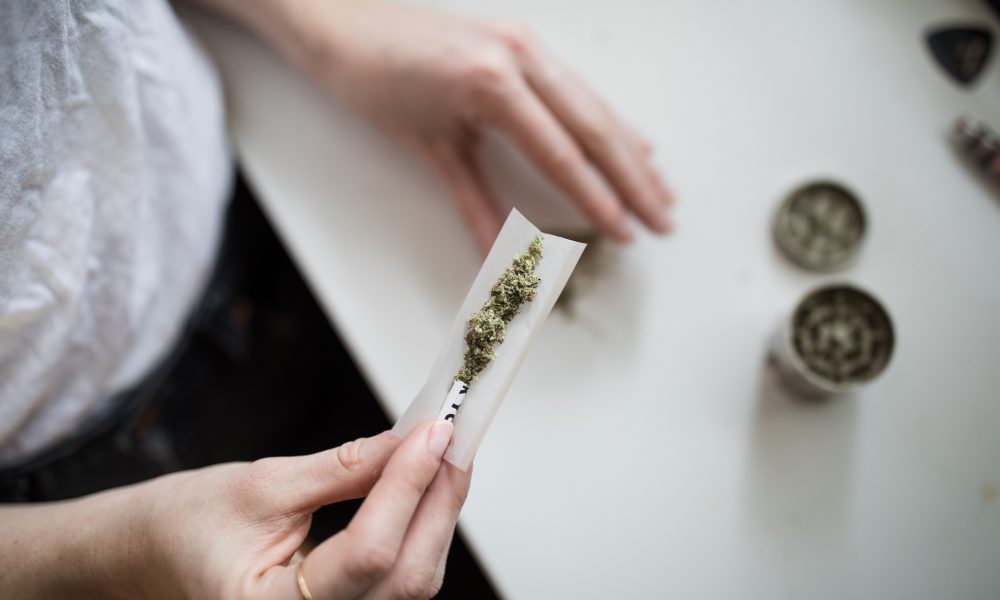A railroad workers strike may have been averted following news of a tentative deal between unions and railway companies this week, but a congressman says the conflict also speaks to the broader need to address labor and supply chain issues, including ending employment-related marijuana testing policies.
Rep. Earl Blumenauer (D-OR) discussed the issue and other aspects of cannabis reform during an appearance on C-SPAN’s Washington Journal on Thursday. He said that the railroad worker deal is “welcome news” and the “situation that the workers faced was really intolerable.”
Working on the railroad requires specialized skills, and while those jobs are generally well-paid, there’s been a gradual erosion of workplace benefits and job security that has created tension and contributed to supply chain problems, the congressman said, adding that one part of the solution would be to eliminate drug testing mandates for marijuana, which discourages would-be applicants and can get qualified workers fired or otherwise punished even if they are not under the influence while at work.
“A lot of these shortcomings in terms of the supply chain are that people do not qualify for the jobs because they’ve used marijuana sometime in the last six weeks, which doesn’t affect their ability to do their job, but it throws them out of the consideration,” Blumenauer said.
The congressman also touted a piece of bipartisan cannabis research legislation he’s sponsoring that cleared the House in July and is expected to be taken up and advanced through the Senate in short order.
The Medical Marijuana Research Act doesn’t specifically address marijuana workplace policies, but it’s meant to streamline studies by removing onerous barriers that scientists currently have to go through to access the Schedule I substance for study purposes.
—
Marijuana Moment is tracking more than 1,500 cannabis, psychedelics and drug policy bills in state legislatures and Congress this year. Patreon supporters pledging at least $25/month get access to our interactive maps, charts and hearing calendar so they don’t miss any developments.![]()
Learn more about our marijuana bill tracker and become a supporter on Patreon to get access.
—
There’s widespread, bipartisan support for cannabis research—and specifically for developing technology that can determine active impairment from THC instead of simply identifying inactive cannabinoid metabolites that can stay in a person’s system for days or weeks after consumption
If employers had a means to test for active impairment when a person is suspected of being intoxicated from cannabis on the job, workplace policies could be theoretically revised to implement that technology and allow off-duty marijuana use, which could encourage applicants and safeguard workers.
Months before the threat of a railroad workers strike presented itself, Blumenauer wrote a letter to Transportation Secretary Pete Buttigieg, arguing that policies on drug testing truckers and other commercial drivers for marijuana are unnecessarily costing people their jobs and contributing to supply chain issues.
The congressman cited DOT data showing that tens of thousands of drivers are being disqualified because of stringent drug screening policies around THC. He said that while nobody wants drivers impaired on the roads, there aren’t tests that can detect active impairment.
While Buttigieg hasn’t specifically weighed in on DOT marijuana testing policy, he did campaign on legalizing cannabis and decriminalizing other currently illicit drugs while running for president in 2020.
DOT did recently issue a proposal to allow saliva-based THC tests as alternative option to urine-based screenings. Depending on frequency of use, active cannabinoids are generally detectable in saliva anywhere from one to 24 hours after use, rather than weeks for urine.
During Blumenauer’s C-SPAN appearance on Thursday, he also talked about two other pieces of marijuana reform legislation that he foresees passing this Congress. One would be another bill of his to promote military veterans’ medical cannabis access, and the other centers around marijuana banking.
The Congressional Cannabis Caucus co-chair signaled that talks about an in-the-works package of incremental cannabis reforms are progressing positively. The so-called “SAFE Plus” omnibus is expected to provide protections for banks that work with state-legal marijuana businesses and also address other “racial justice” issues, the congressman said.
While Blumenauer suggested in he interview that there were plans to put the legislation in a forthcoming continuing resolution “to keep the government running” after the end of the 2022 Fiscal Year on September 30, a spokesperson later told Marijuana Moment that he misspoke and was more broadly referring to the prospects of incorporating various cannabis reforms as part of a bipartisan legislative package.
Negotiations over the marijuana omnibus have also involved conversations about provisions dealing with issues such as veterans’ medical cannabis access, marijuana research and expungements.
The House has passed the standalone SAFE Banking Act, sponsored by Rep. Ed Perlmutter (D-CO), in some form seven times now. But it has consistently stalled in the Senate, where leadership has insisted on enacting comprehensive reform first, or at least something more incremental that still addresses equity and racial justice.
Blumenauer’s remarks come as cannabis business leaders from across the U.S. are on Capitol Hill for the National Cannabis Industry Association (NCIA) Lobby Days, with more than 100 meetings scheduled with lawmakers and staff this week to advocate to policy changes.
Bicameral SAFE Banking sponsors—Perlmutter and Sen. Jeff Merkley (D-OR)—spoke about the path forward at a NCIA-organized press conference on Wednesday.
Perlmutter said that he feels the stage is set to get something enacted “by the end of this year,” but he’s also increasingly willing to leverage his role on the House Rules Committee to hold up legislation like the National Defense Authorization Act (NDAA) if his colleagues refused to action on cannabis reform.
With respect to the SAFE Plus bill, Sen. Cory Booker (D-NJ) recently said that he expected the legislation to be filed sometime after November. Rep. Dave Joyce (R-OH), another Congressional Cannabis Caucus co-chair, told Marijuana Moment on Tuesday that he expects an introduction either in November or December, though he stressed that the timing remains fluid.
Medical Disclaimer:
The information provided in these blog posts is intended for general informational and educational purposes only. It is not a substitute for professional medical advice, diagnosis, or treatment. Always seek the advice of your physician or other qualified healthcare provider with any questions you may have regarding a medical condition. The use of any information provided in these blog posts is solely at your own risk. The authors and the website do not recommend or endorse any specific products, treatments, or procedures mentioned. Reliance on any information in these blog posts is solely at your own discretion.






